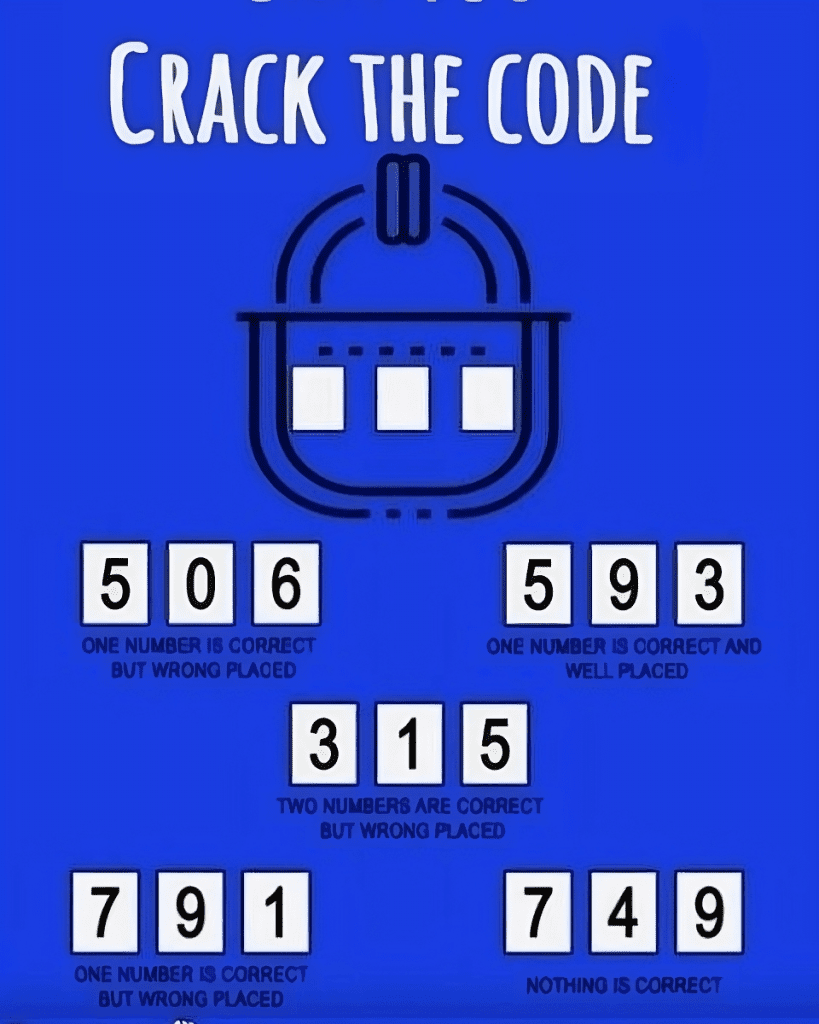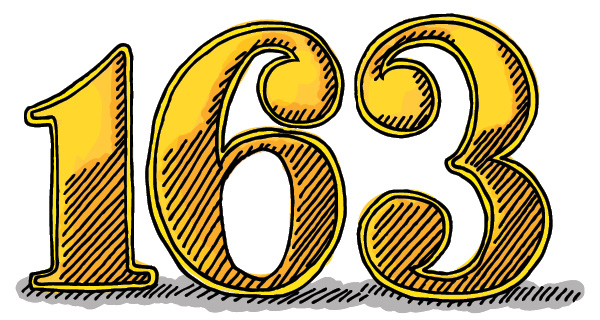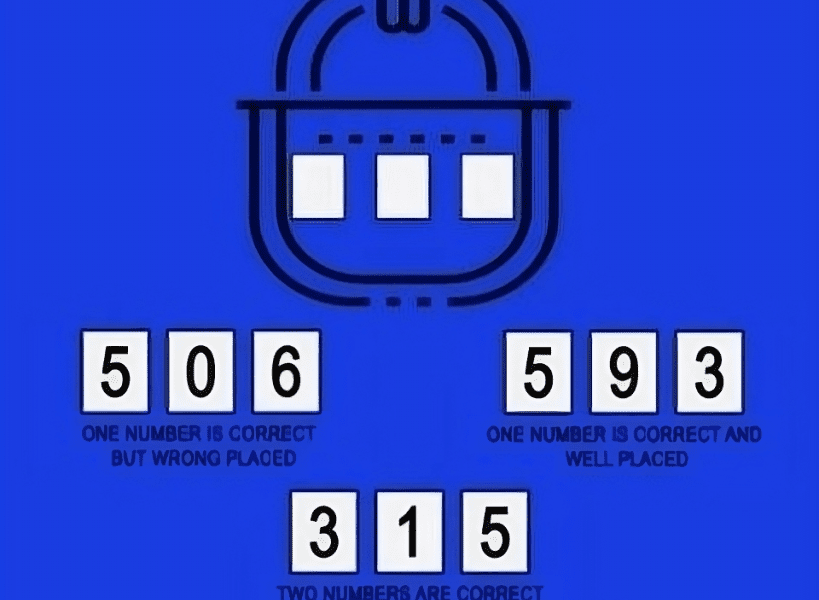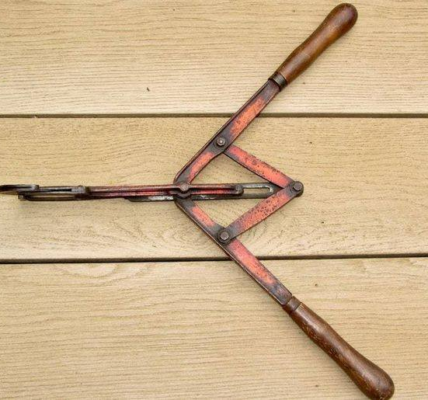Puzzles have a unique way of pushing our brains beyond basic logic, and today’s three-digit code-breaking puzzle is no different. This brainteaser is all about interpreting clues, making deductions, and figuring out the correct combination step-by-step. It might seem simple at first, but don’t be fooled—it requires patience, logic, and keen observation.
Think you’ve got what it takes to solve it? Let’s break down the clues, identify common mistakes, and reveal the code one step at a time.
Why This Code-Breaking Puzzle Is Trickier Than It Looks
At first glance, this puzzle might seem straightforward. You have a series of clues that hint at a three-digit code, but the challenge lies in interpreting these clues accurately. The biggest obstacle is that the clues involve not just correct digits but also their placement. Many solvers make the mistake of assuming a number’s correct position too quickly or overlooking necessary eliminations.
To crack this code, you’ll need to reevaluate each clue as you make progress and ensure that every deduction aligns with the information provided.
Common Mistakes When Solving Code-Breaking Puzzles
Before diving into the solution, let’s consider some of the most common mistakes solvers make:
- Assuming Correct Placement Too Soon: Jumping to conclusions about a digit’s position can lead you down the wrong path.
- Forgetting to Eliminate Digits: It’s crucial to eliminate numbers that are proven incorrect, as they can mislead you if not removed from consideration.
- Not Rechecking Each Clue: As you make new deductions, it’s important to revisit each clue to ensure the logic holds up.
Now that we’re aware of these potential pitfalls, let’s solve this puzzle step-by-step.

Step-by-Step Solution to the Code-Breaking Puzzle
Clue Overview: Analyzing the Clues One by One
Let’s start by analyzing each clue provided:
- Clue 1: 506 – One number is correct but wrongly placed.
- Clue 2: 593 – One number is correct and well placed.
- Clue 3: 315 – Two numbers are correct but wrongly placed.
- Clue 4: 791 – One number is correct but wrongly placed.
- Clue 5: 749 – Nothing is correct.
Using this information, we’ll use deduction and elimination to find the three-digit code.
Step 1: Analyze Clue 1 (506 – One number correct but wrong position)
Clue 1 tells us that one digit among 5, 0, or 6 is part of the code, but it’s in the wrong position. This means that at least one of these digits is in the final code, but it won’t be in its current position.
Step 2: Analyze Clue 2 (593 – One number correct and well placed)
Since one of the digits is both correct and in the right position, we know that either 5, 9, or 3 must be in the code. However, from Clue 1, we know that 5 cannot be in the first position, which rules out 5 as the correct digit here. We also learn from Clue 5 that 9 is not in the code at all. Therefore, 3 must be the correct digit, and it must be in the third position.
Step 3: Analyze Clue 3 (315 – Two numbers correct but wrongly placed)
We’ve already established that 3 is correctly placed in the third position, so it’s not one of the “wrongly placed” digits mentioned in Clue 3. This means that the other two digits, 1 and 5, are part of the code but are not in their current positions. We can now deduce that 1 is in the code but not in the second position, and 5 is in the code but not in the third position.
Step 4: Analyze Clue 4 (791 – One number correct but wrongly placed)
From previous deductions, we know that 9 is not part of the code. This leaves only 1 as the correct digit in Clue 4, but it is incorrectly placed in the second position. Therefore, 1 must be in the first position of the final code.
Step 5: Analyze Clue 5 (749 – Nothing is correct)
Clue 5 confirms that none of the digits 7, 4, or 9 are in the code. This supports our earlier deductions that 9 is not part of the code and also rules out 7 and 4.
Putting It All Together: Finding the Code
Let’s compile all the information:
- 1 is in the first position (from Clue 4).
- 3 is in the third position (from Clue 2).
- The only remaining digit from Clue 1 is 6, which must be in the second position.
So, the final code is 163.

The Correct Answer: 163
After thoroughly analyzing each clue and making deductions step-by-step, we find that the three-digit code is 163. This solution fits perfectly with all the clues, making it the correct answer.
Why This Code-Breaking Puzzle Is a Great Brain Teaser
This puzzle isn’t just about finding the right answer—it’s about understanding the logic behind each clue and how they relate to one another. The increasing complexity of the clues requires careful thinking and a methodical approach. By breaking down the problem step-by-step, you can improve your problem-solving skills, sharpen your analytical thinking, and develop a better understanding of logical deduction.
Challenge Your Friends: Test Their Code-Cracking Skills
Did you manage to crack the code? If you did, well done! If not, don’t worry—this type of puzzle is designed to challenge even the best problem-solvers. Share this code-breaking puzzle with your friends and family to see if they can figure it out. It’s a great way to encourage logical thinking and have some fun together.
Conclusion: Mastering Code-Breaking Puzzles
The three-digit code-breaking puzzle is a fantastic exercise in logical reasoning, deduction, and attention to detail. It reminds us that even simple-looking puzzles can require deep thinking and a step-by-step approach to find the correct answer. By staying patient, rechecking clues, and eliminating wrong options, you can solve complex puzzles more effectively.
So, keep challenging yourself with similar puzzles! They’re not just entertaining—they’re also a great way to improve your critical thinking and analytical skills.


